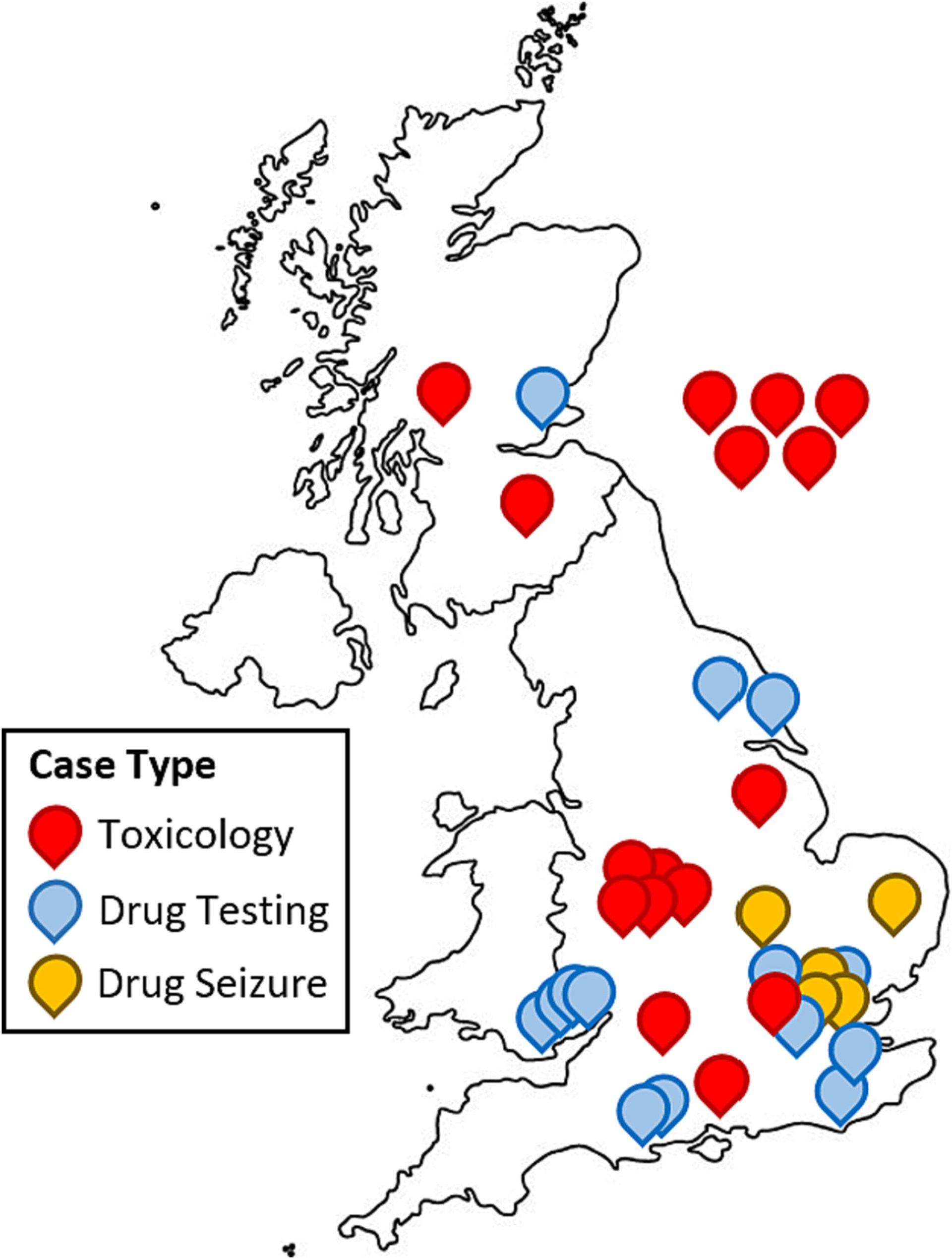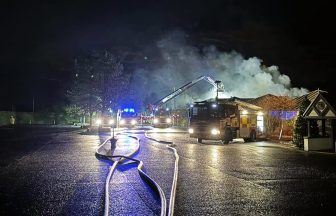Key points
-
 Xylazine is a powerful animal tranquiliser known commonly as ‘tranq dope’
Xylazine is a powerful animal tranquiliser known commonly as ‘tranq dope’ -
 It is linked to horrific side effects – including tissue necrosis which can lead to amputation
It is linked to horrific side effects – including tissue necrosis which can lead to amputation -
 Toxicology reports show a rapid increase in detections of xylazine, according to Scotland’s early-warning drugs surveillance system
Toxicology reports show a rapid increase in detections of xylazine, according to Scotland’s early-warning drugs surveillance system -
 It has been found in a colourless liquid sold as THC vape liquid and in a white powder sold as ketamine
It has been found in a colourless liquid sold as THC vape liquid and in a white powder sold as ketamine -
 Until 2023 there were only two reports of xylazine in Scotland – since then it has been detected 14 times
Until 2023 there were only two reports of xylazine in Scotland – since then it has been detected 14 times
A powerful animal tranquiliser known as the “zombie drug” has “penetrated” Scotland’s illegal substances market, experts have warned.
Xylazine, also known as tranq dope, has already been linked to one death and concerns have been raised that it may have contributed to several more across the UK.
In most cases the drug is mixed with strong opioids such as heroin or fentanyl, but a new study shows it has also been found in counterfeit prescription medication tablets, THC (tetrahydrocannabinol) vapes and cocaine.
The new study, published in the journal Addiction, warns about side effects including airway compromise and skin ulcers – or “tissue necrosis” – which can lead to limb amputation.

Toxicology reports show a rapid increase in detections of xylazine in Scotland, according to the country’s early-warning drugs surveillance system RADAR.
Until 2023 there were only two reports of xylazine in Scotland; firstly in a white powder sold as ketamine in East Ayrshire, in January 2020, then in the colourless liquid of a THC vape in Fife, in June 2022.
But since then, it has been detected 14 times.
“This is cause for alarm as a much wider population of people who use drugs beyond heroin users will be exposed to its harms.”
Dr Caroline Copeland
Researchers, led by academics from King’s College London, highlighted how use of the drug has become a major concern in the US and this “public health threat has now expanded to the United Kingdom”.
They highlight the death of a 43-year-old man in Solihull in the West Midlands, in May 2022.
Their study examined various toxicology, drug testing and drug seizure sources and found 35 cases of xylazine across England, Scotland and Wales by the end of August last year. No cases were found in Northern Ireland.
 Addiction
AddictionThey published data on 16 biological samples taken from toxicology labs, where the drug was found in 16 people – including 11 people who had died. Some 11 of these samples were from summer last year.
Senior author Dr Caroline Copeland, from King’s College London, said: “We now know that xylazine has penetrated the UK’s illicit drug market.
“This is cause for alarm as a much wider population of people who use drugs beyond heroin users will be exposed to its harms.
“We also know that most people who buy heroin will not intend to buy xylazine and this combination increases the risk of overdose. Xylazine was designated an ‘emerging threat’ to the United States and this public health threat is a growing concern for the UK.
“There are three simple measures the UK can introduce to prevent the epidemic of xylazine use that has emerged in the USA. Cheap xylazine test strips should be made available, healthcare providers need to be aware of the signs that chronic skin ulcers are due to xylazine use, and pathologists and coroners should specifically request toxicology testing for xylazine in relevant cases to understand the true prevalence of the drug.”
Scotland’s drugs and alcohol policy minister Christina McKelvie said the Scottish Government were concerned about changes to the substances being seen in an “increasingly unpredictable and toxic drug supply”.
“We’re working hard to respond to the threat from the unexpected presence of drugs like xylazine and super-strong synthetic opioids like Nitazenes which bring increased risks of overdose and death,” she said.
“Rapid Action Drug Alerts and Response reports, which play a vital part in providing an early warning of emerging trends, have already highlighted the dangers of xylazine to alert services and people who use drugs.
“This reinforces the need for us to maintain our £250m National Mission to reduce drug deaths and harms. Through this we’re committed to helping deliver drug-checking facilities which would enable us to respond faster to these trends and licence applications for these have been submitted by partners in Aberdeen and Dundee in recent weeks.”
A UK Government spokesperson said: “We are aware of the threat from xylazine and are determined to protect people from the threat posed by this drug and other illicit synthetic drugs.
“We will not hesitate to act to keep the public safe. Following advice from the Advisory Council on the Misuse of Drugs (ACMD), we intend to make xylazine a Class C drug meaning anyone supplying this substance will face up to 14 years in prison, a fine or both.”
Follow STV News on WhatsApp
Scan the QR code on your mobile device for all the latest news from around the country



























